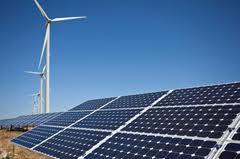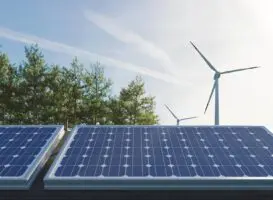In 2014, Australia will host the G20 Summit. The Prime Minister’s Office has been canvassing privately for a Big Idea to present, something to take the green debate forward and put Australia’s stamp on it.
Here then is a proposal. What about getting the G20 to commit to free trade in clean technology goods? This is an idea that would do more to mitigate global warming – and give a boost to green growth and development – than all the efforts made under Kyoto to date.
A clean tech free trade deal would kick-start a flow of goods that would promote green growth and curb carbon emissions. It would bring China, India and Brazil into a much more positive trading relationship with the US, EU and Japan. And it would give the PM the opportunity to invite the newly announced head of the World Trade Organization, Robert Azevêdo from Brazil, to visit Australia.
There is an important precedent in our own region. Last year, APEC countries committed to reduce tariffs on “environmental goods” (listed here) to less than 5% by 2015. Australia was instrumental in securing this APEC commitment – the first in the world committing countries to introducing free trade in clean tech goods.
Getting other G20 countries involved would be a logical and sound progression. It would be feasible because China, the US, Japan, Korea, Indonesia, Russia, Canada and Mexico as well as Australia are all APEC members and have already signed up.
A global free trade agreement in clean tech goods would have profound ramifications for greening economies. It has a very powerful precedent, in the IT sector. The huge surge in IT investments over the past 15 years is thanks to a similar agreement providing for free trade in IT goods. The 1996 Ministerial Declaration on Trade in IT products (better known as the Information Technology Agreement) envisages totally free trade in all IT goods and has garnered 70 participants since it was signed in 1996.
This agreement has teeth because it was adopted by the WTO. It drives a free trade momentum amongst the world’s leading economies, stimulating their adoption of IT products and helping to expand markets for IT producers. It drove the elimination of tariffs on hundreds of products, making them available to developing economies around the world. This agreement proves that free trade really does work – when it is targeted and really is free.
A global clean tech agreement could have exactly the same effect, ushering in a surge in investment in green technologies such as renewable energies around the world, through the promotion of free trade in clean tech goods. It would stimulate the adoption of clean tech goods by leading economies, help to expand the markets for clean tech goods (including exports from Australia) and generally accelerate worldwide progress to a green, low-carbon future.
A global clean tech agreement would be far more valuable to the world economy than anything achieved so far under Kyoto. A series of collapsed international climate talks have manifestly failed to make any dent on relentlessly rising carbon emissions. In 1990, the world emitted just over 22.7 billion tonnes CO2; by 2011 this had risen to 33.9 billion tonnes, with the trend going ever upward. In place of the reduction envisaged under Kyoto, there has been a 50% increase.
The idea of a clean tech agreement has the backing of the influential IT Innovation Foundation in Washington, DC, and of the Geneva-based International Centre for Trade and Sustainable Development. A high-level workshop was staged in Washington DC in January this year to canvass support for just such an agreement.
A global free trade agreement in clean tech goods would be good not just for the green sectors, but for the wider trade
This proposal is radical and innovative. If Australia can do it, we would be a world leader. And we would do more for a shift to green technology than any number of Kyoto agreements.
Written by John Mathews, Professor of Strategic Management at Macquarie Graduate School of Management.
This article was originally posted on The Conversation. Re-produced with permission.










